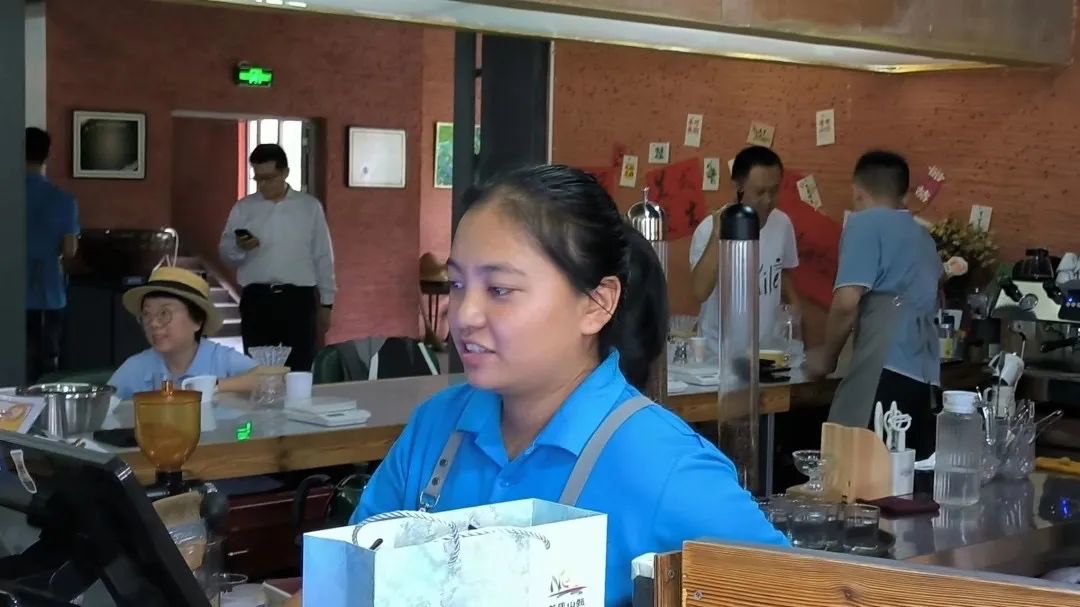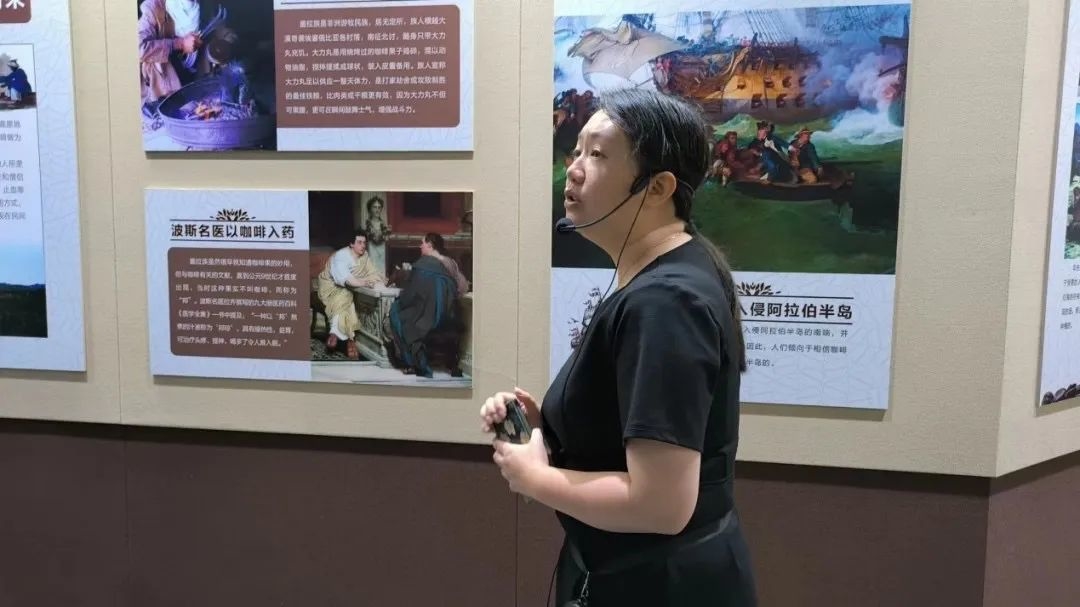15
2023.08
More coffee lovers are being trained to be professional ones in Pu’er, a city in Yunnan province probably best known as the source of Pu'erh tea for a long time.
“Creative Coffee course taught me how to create some different flavor.” A barista surnamed Zhao in Manya Coffee, a modern coffee farm with diversified entertaining functions, recalled her favorite class in the coffee training school. After all, baristas who can roll out creative flavors will leave customers with great impression.
After more than twenty years of development, Manya Coffee has become an enterprise diversified and comprehensive enterprise integrating planting, primary processing, intensive processing, leisure, tourism, training, marketing and coffee culture dissemination.
According to the official occupational classification standard in China, there are five different levels to measure the skills of baristas, including primary barista, intermediate barista, senior barista, technician and senior technician. Zhao has been an intermediate barista after she passed the corresponding certification test with what she learnt in the training school.
The barista surnamed Zhao in Manya Coffee There will be more and more baristas in Pu’er like Miss Zhao. The area, output and output value of Pu'er coffee industry ranks first domestically, and it has become the major distribution center of coffee trading in China. As the strong consumption is driving the growth of the coffee industry in Pu’er, its prospective high-quality development requires more qualified practitioners. Thus, the city responds to the boom by setting up barista vocational training schools and various programs for coffee lovers to learn professional coffee skills. According to Zhao, Pu’er government used a campaign last year to encourage citizens to learn coffee culture and even exempt them from fees for basic-level certification examination. Manya Coffee established its own vocational school in 2009 with the approval of the Department of Human Resources and Social Security and the Department of Civil Affairs in Yunnan to train baristas' vocational skills. “The original purpose was to provide more job opportunities. Hence, we started to cooperate with many colleges and universities with our training programs since young people were more open to coffee culture.” Said Zhang Rui, head of Manya Coffee. Zhang Rui, head of Manya Coffee While coffee talents are popular among the industry, the certification has also been widely valued by many coffee practitioners and coffee lovers. The latest version of National Vocational skill Standard for Barista, referred to as the new national standard, was officially released in June, 2022. According to the new standard, the national vocational skill standard for baristas will be integrated into the national vocational skill qualification certificate system. It means that the requirement for corresponding practitioners will be higher, thus the coffee training industry is expected to be more standardized. According to the public information, there have been totally 15 barista training schools and institutions registered in Pu’er so far. Pu'er Vocational Education Center (Pu'er Technical School), among which Pu'er College, Tropical Crops College of Yunnan Agricultural University and Pu'er Manya Coffee Vocational Training School are authorized to host barista certification test. Honing their skills, baristas and other coffee lovers could perform their learning results in official competitions in Pu’er. The 2023 Pu'er coffee skills competition themed “ingenuity and popularization of skills" ended on July 16 after three days of fierce competition. In the competition, 152 participants in 15 teams from several universities competed in four different sections, including roasting, brewing, latte art and espresso. Pu'er coffee skills competition in 2023 (Source: Yunnan International Coffee Exchange) The upgrading of coffee industry in Pu’er also means that the tastes of consumers should catch up with the progress of baristas. A local coffee lover surnamed Zhang found that Pu’er coffee turns out to be lofty and grandiose for laymen when some baristas highlight the standard of beans and the refined brewing methods. “There are many good baristas who pay attention to the quality of coffee, but the reality is that many people don’t care about it, or don’t know why they should do so. Only a small number of coffee lovers who are particular about the taste of coffee will know why medium roasts are better.” Zhang said. It is worth noting that in addition to cheap training programs similar to those for prospective baristas, there are other business models that help laymen get closer to coffee. For example, Manya’s Coffee Volunteer program serve the needs of young coffee lovers. “You are welcome here to work without worrying about food and accommodation. You help the company pick mature coffee beans and in exchange, you will learn everything about coffee in two weeks. I think the threshold is low since those who can work are easily get the job.” Zhao Xin, Section Chief in Department of Publicity of Pu’er city, acknowledged the role of volunteers in spreading coffee culture. Field trip program is another form of consumer education. According to a barista in Manya, Manya charges each student a little more than 2,000 yuan for a two-week program, which include food, accommodation, and scheduled training program. “We are looking forward to having more young coffee lovers here.” Said Zhang Rui.


文字 | 陈斯达
排版 | 赵雨晴

2025.12.16 15:15
16
2025.12
16
2025.12
16
2025.12
 28:32
28:32
2025.06.19 08:55